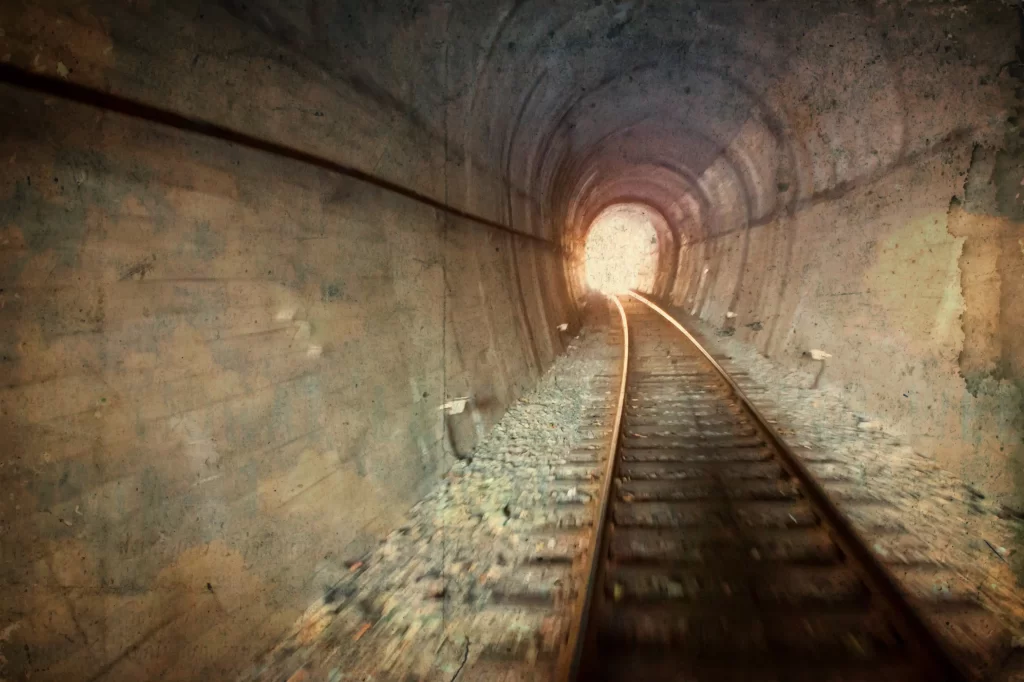Concrete plays a pivotal role in the realm of underground construction, serving as the cornerstone of structural integrity and durability in various subterranean projects. Its significance lies in its ability to withstand the unique challenges posed by underground environments, including high pressure, moisture, and potential ground movement. As we delve into the world of underground structures, it becomes evident that different types of concrete are tailored to meet specific needs and overcome distinct challenges. From Ordinary Portland Cement (OPC) concrete to specialized formulations like High-Performance Concrete (HPC) and MagnaDense Concrete, each variant offers unique properties and advantages that are meticulously chosen to ensure the longevity and stability of tunnels, garages, sluices, and other subterranean constructions.
Ordinary Portland Cement (OPC) Concrete
Properties and Characteristics:
Ordinary Portland Cement (OPC) concrete is the most commonly used type of concrete in underground construction. It is composed of Portland cement, aggregates (such as sand and gravel), water, and often admixtures for improved performance. OPC concrete exhibits excellent compressive strength, making it ideal for supporting the weight and loads encountered in underground structures. Additionally, it offers good durability, resistance to water infiltration, and ease of placement, which are essential qualities for long-lasting subterranean constructions.
Common Applications in Underground Construction:
OPC concrete finds widespread use in a variety of underground structures due to its versatility and reliability. Some common applications include:
Tunnel linings: OPC concrete is used to construct tunnel linings, providing structural support and protection against ground movements and water ingress.
Underground parking garages: OPC concrete is employed for constructing floors, walls, and ramps in underground parking facilities, ensuring robustness and durability in high-traffic areas.
Utility tunnels: OPC concrete is utilized for constructing utility tunnels to accommodate various underground services such as water pipes, electrical conduits, and telecommunications cables. Its strength and resistance to environmental factors make it suitable for protecting and encasing these vital utilities.
Foundations and basements: OPC concrete serves as the foundation material for underground structures, providing a stable and solid base to support the weight of the building above ground. Additionally, it is used for basement walls and floors to create habitable spaces below grade.
Overall, ordinary Portland Cement (OPC) concrete remains a fundamental choice for underground construction projects, offering a reliable and cost-effective solution for various structural needs in subterranean environments.
High-Performance Concrete (HPC)
1. Features and Benefits:
Strength: HPC typically has compressive strengths ranging from 6,000 to 20,000 pounds per square inch (psi), far surpassing traditional concrete mixes.
Durability: Its low permeability reduces the ingress of moisture and aggressive chemicals, enhancing the concrete’s durability and extending the lifespan of structures.
Workability: Despite its higher strength, HPC maintains excellent workability and can be easily placed and compacted.
Reduced Maintenance: Due to its enhanced durability and resistance to environmental factors, structures built with HPC require less maintenance over their lifetime compared to conventional concrete, resulting in lower life-cycle costs.
Improved Sustainability: HPC’s superior strength allows for the use of smaller structural elements, leading to reduced material consumption and environmental impact.
Examples of Underground Structures where HPC is Used:
High-Performance Concrete (HPC) is extensively used in various underground structures, including tunnels, underground parking garages, utility vaults, subway stations, and water treatment facilities. Its high strength, durability, and resistance to environmental factors make it ideal for providing structural support, protection against corrosion and water ingress, and ensuring long-term performance and safety in these critical infrastructure projects.
MagnaDense Concrete
MagnaDense Concrete is a specialized type of concrete renowned for its exceptionally high density, achieved through the inclusion of heavy aggregates such as natural iron ore. This unique composition grants MagnaDense Concrete unparalleled mass and weight properties, making it an ideal choice for applications where density and stability are paramount. Whether utilized for radiation shielding in nuclear facilities, stabilizing tunnel linings in underground construction, or providing efficient counterbalance in transportation systems, MagnaDense Concrete offers unmatched performance and reliability in diverse engineering projects.
Unique Properties and Advantages:
High Density: Magnadense Concrete boasts a significantly higher density due to heavy aggregates like natural iron ore.
Enhanced Radiation Shielding: Ideal for radiation-sensitive environments, offering superior protection against harmful radiation.
Compactness and Stability: Provides exceptional stability and resistance to external forces, ensuring structural integrity.
Thermal Insulation: Despite its density, it can offer effective thermal insulation, contributing to energy efficiency.
Applications and Benefits in Underground Construction:
Tunneling and Boring: Used for TBM counterbalance and stable tunnel linings, minimizing ground settlement risks.
Radiation Shielding: Essential in nuclear facilities, medical facilities, and research labs to protect against radiation exposure.
Retaining Walls and Barriers: Ideal for constructing stable barriers in underground settings, ensuring long-term integrity.
Ballast and Counterweight: Employed in railways, cable cars, and elevators to provide efficient weight distribution and stabilization.
Concrete serves as the backbone of underground construction, offering durability, stability, and versatility to a wide range of subterranean structures. From ordinary Portland Cement (OPC) concrete providing reliable strength to specialized formulations like High-Performance Concrete (HPC) and MagnaDense Concrete offering unique properties for specific applications, the realm of underground construction benefits greatly from the diverse capabilities of concrete.
For those embarking on underground construction projects, the choice of concrete supplier is crucial. With a reputation for excellence and a commitment to quality, SRMPR Cements stands out as a trusted partner in delivering high-quality concrete solutions. By choosing SRMPR Cements, individuals and organizations can rest assured that they are investing in top-notch materials backed by extensive expertise and dedication to customer satisfaction.



